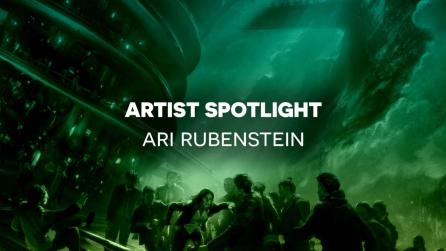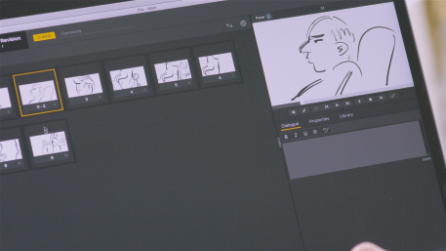The creativity and technical skills behind a multi-talented artist.
For Ali Ehtemami, what started out as a hobby, stitching and syncing videos to music, soon evolved into a passion and then a career. “I was more interested in the ‘making of VFX’ videos rather than the actual films and I was also a gamer," explains Ali. "I find visual effects a combination of these two worlds.”
Now a Lead Compositor for feature films and episodic shows at Image Engine, Ali’s journey started with a Bachelor’s Degree in Software Engineering.
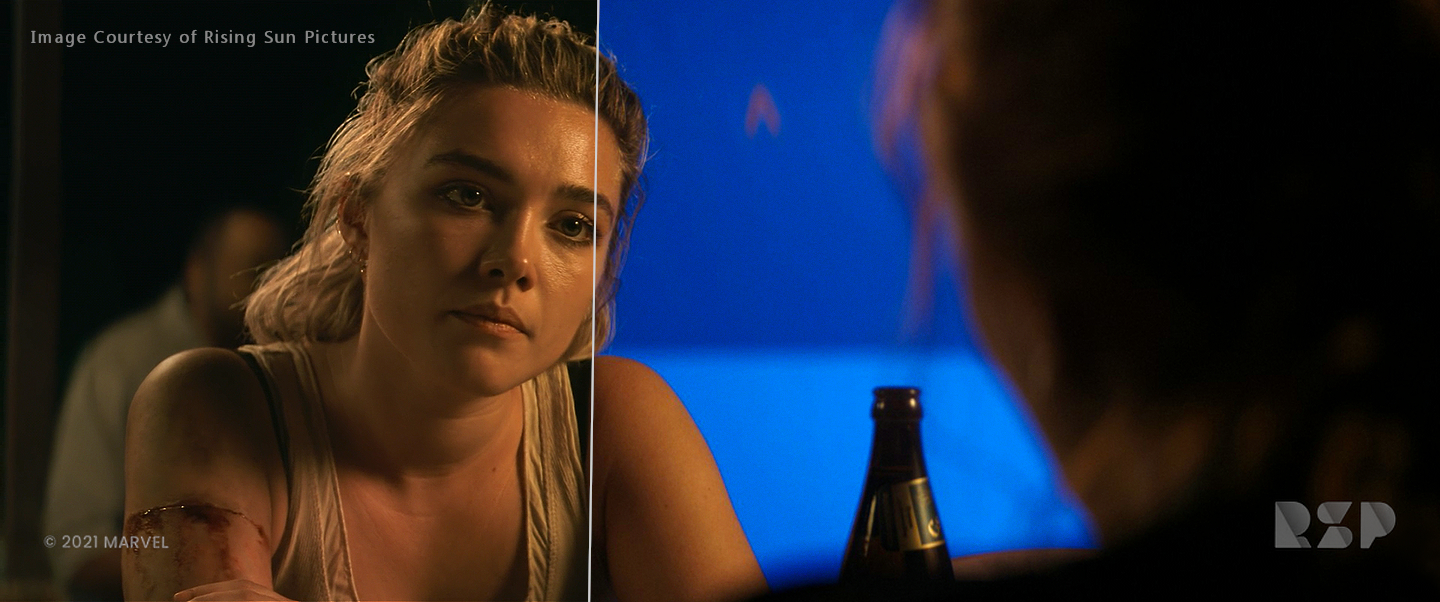
During his studies, he started working as a VFX Compositor and continued growing his career in bigger productions as a Senior Compositor and on-set Shoot Supervisor. After building on his experience and confidence, he moved to Australia and joined Rising Sun Pictures. There, he had the chance to work on some of the biggest titles of 2020 and 2021 such as Black Widow and Mortal Kombat.
“Working on the Mortal Kombat movie was such a cool experience since the retro Mortal Kombat game was one of my favorite video games,” says Ali. He then took a big step — both geographically and professionally — and moved across the globe to Canada where he worked on Spider-Man: No Way Home at Folks VFX.
His creativity opened doors to other talents too and, besides photography and videography, he also has a musical side.”Playing drums was a big part of my life before getting into the VFX industry and, after many years, I started playing electronic drums again and I spend my after-work hours playing music.”
We caught up with Ali to discuss his career journey and the projects he's worked on so far, his experience with Nuke, and his thoughts about the future of the VFX industry.
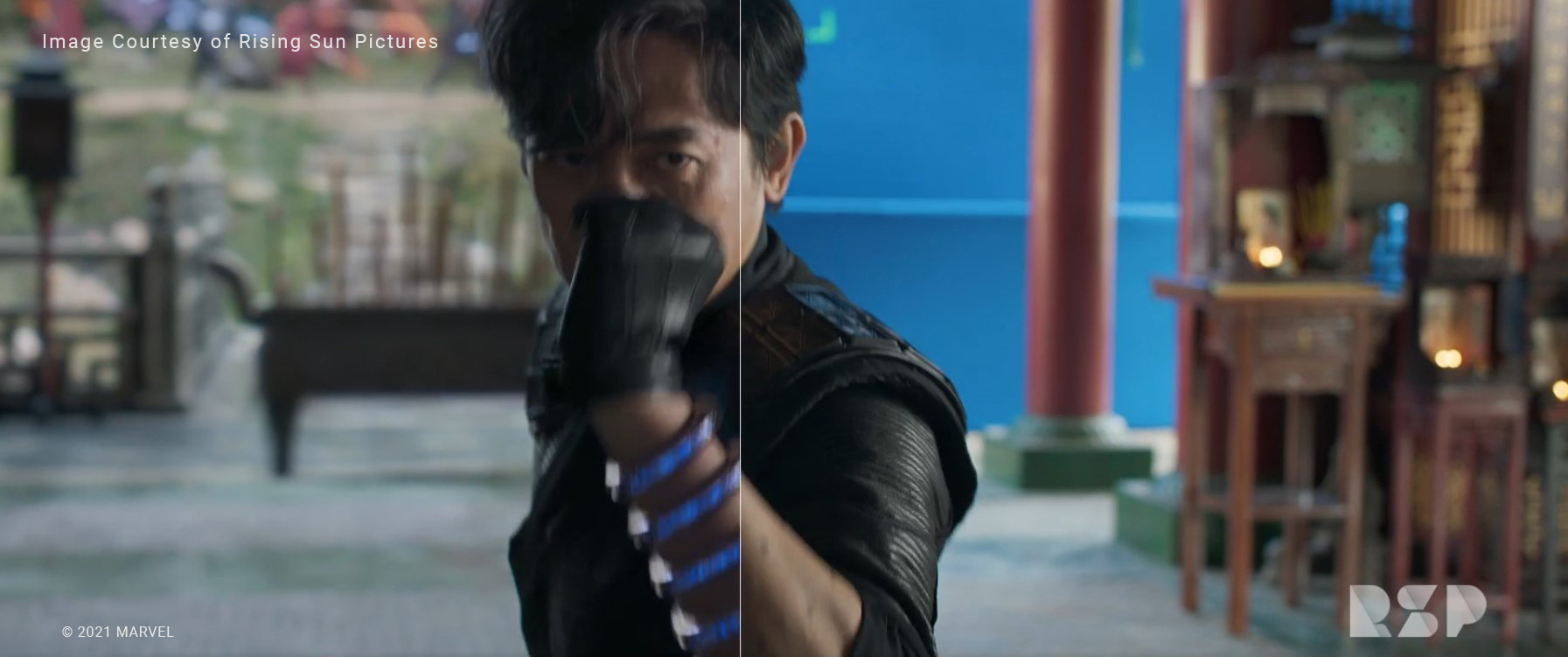
Q: What ‘clicked’ when you realized you wanted to work in the VFX industry?
A: The short answer is watching behind the scenes videos. The Matrix and mostly its behind-the-scenes documentary was the spark and it made me more and more excited about the VFX industry.
Q: Do you remember the first project you worked on?
A: Yes — the first feature film was also my first professional job and I was paid for that. It was a film called Che that was shot on 35mm film, so I was working on scanned images.
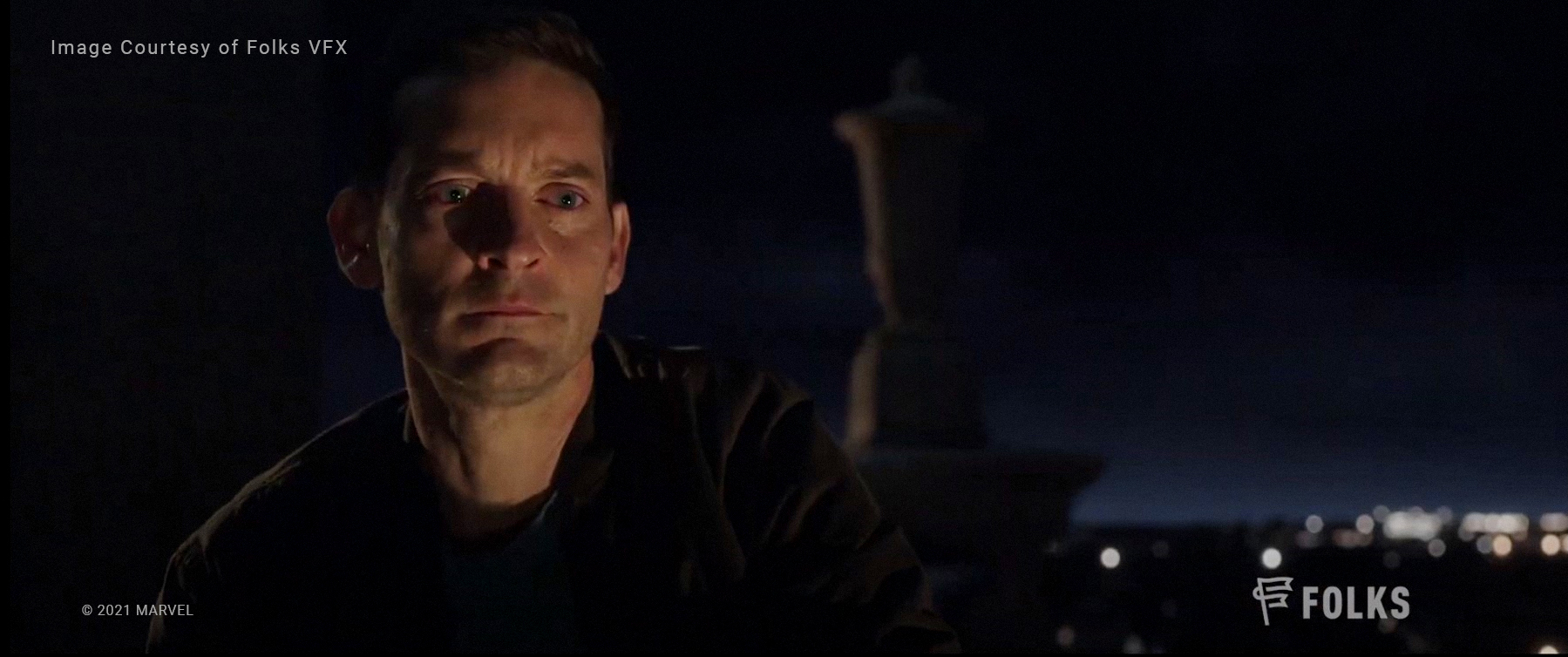
Q: You’ve worked on many well-known projects such as The Salesman, Black Widow and Spider-Man: No Way Home. What project are you most proud of, and why?
A: Every project has been such a unique experience for me. Jungle Cruise was the first blockbuster that I worked on, so that was challenging and opened a new door for me. Working on Spider-Man: No Way Home was also such a unique and challenging experience since I was taking on more responsibilities as a Compositing Lead on a big show.
Q: You’ve received an Oscar-winning credential for The Salesman and won several awards, including the award for Best Use of Smart Vectors in the Nuke Competition 2017. How has your work life changed since then?
A: Working on those shows, with the best people in the industry, raises the bar. Every show and shot has its unique challenges but in the end, should be done seamlessly. Companies may like to work with people with a certain career background, not necessarily because of what they’ve done before, but mostly because of what they can do for their upcoming shows.
Also, the Nuke Competition 2017 was a challenge for me to explore more what I can do with Nuke, especially with Smart Vector which was a new tool at that time.
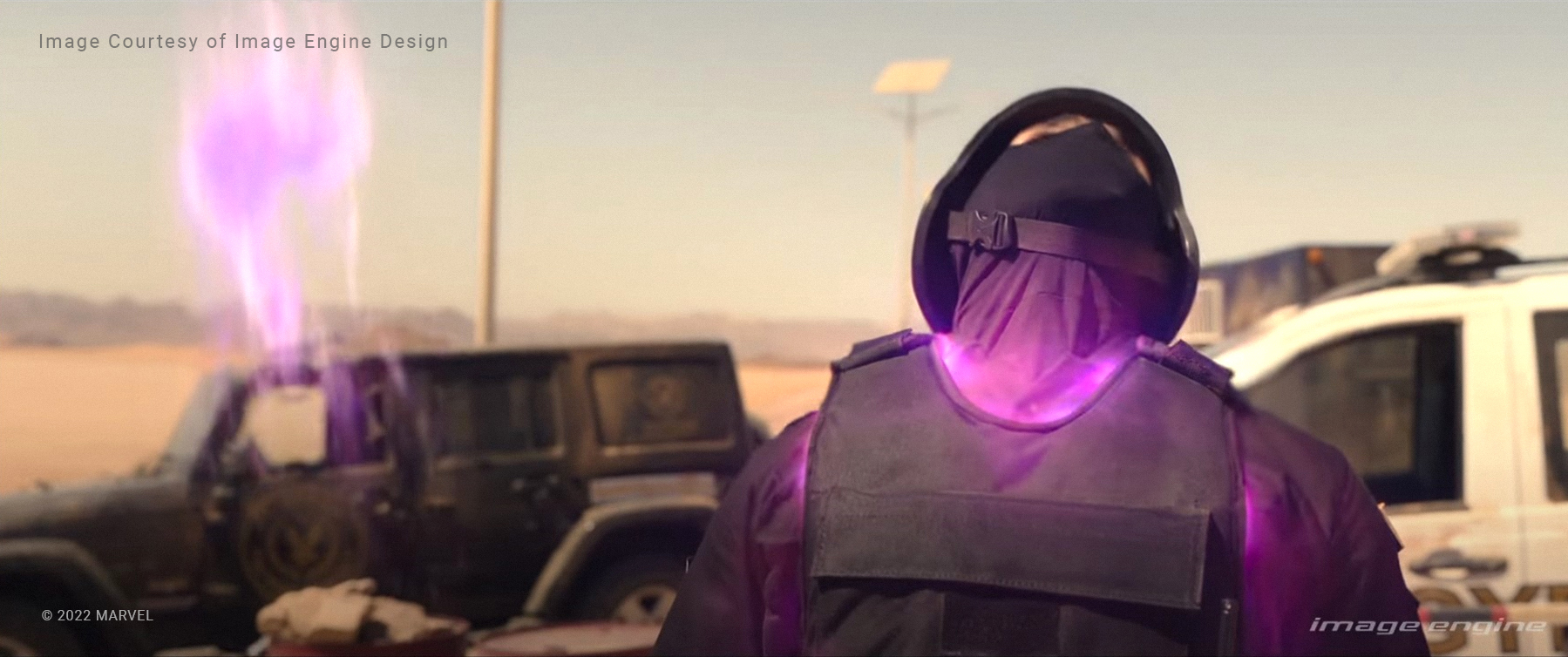
Q: What helps you get in ‘the zone’ when you start working on a project? Do you have a routine that helps you visualize your ideas better?
A: It’s always good to have an idea of the vibe or history of the show overall. I usually start reviewing the Edit reference of the sequences to have an idea of the show. Then start to make a first pass comp by adjusting the exposure and matching the colors, as well as remaking the lens effects corresponding to the plate. Another concept that I follow is starting with the simplest problem and trying the easiest or smartest solution first.
Q: Can you describe your usual workflow?
A: My main approach in compositing is getting as close as possible to what happens in real life. I bring that even in my node graph and try sorting and prioritizing layers and effects as they would be in the real world. Also, I start with the easiest part of my comp and use simple and fast techniques. If that doesn't work, I’ll do or figure out more complex approaches.
Working tidily and being organized has saved me many times when it comes to making changes after several iterations, or passing my Nuke script to other compositors to follow or use in their composites.
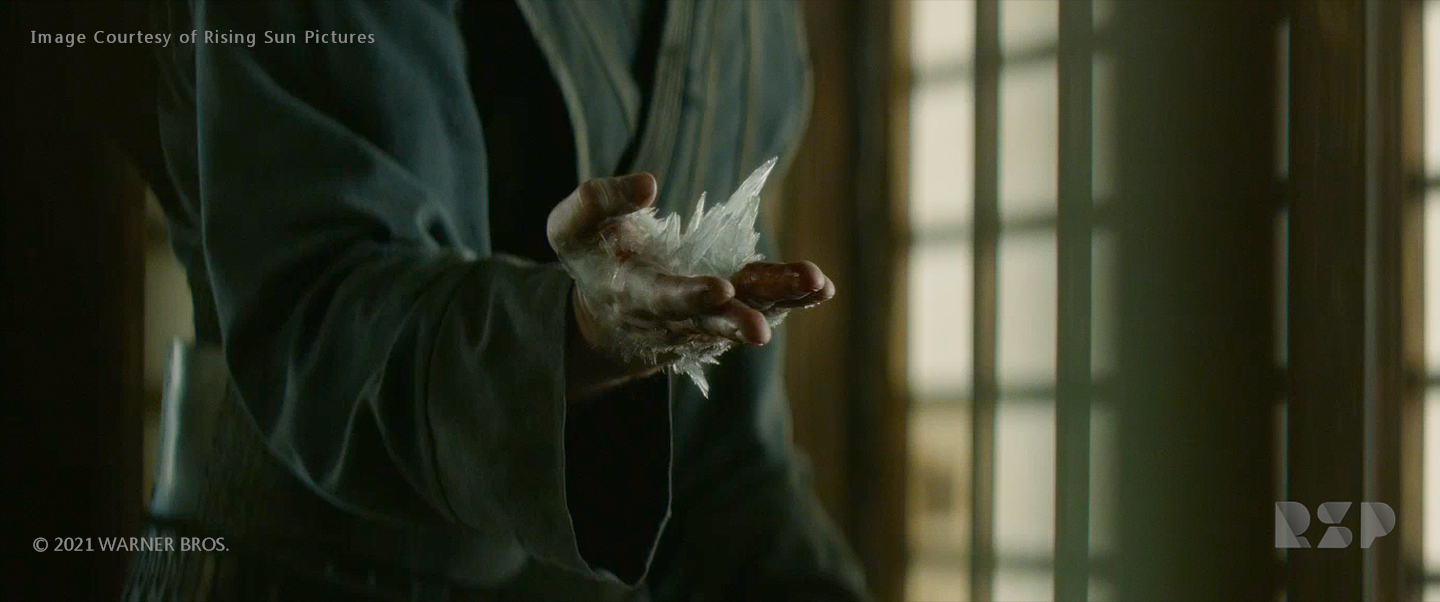
Q: Has the way you work changed over the years? If so, could you explain how?
A: My approaches and workflows changed a lot, depending on the company and shows. For example, when I was working on smaller productions, I had some more things to do other than just compositing such as VFX editing and color management. For that kind of role, I was using Nuke Studio to make and manage initial composites for the team and then would continue doing the final comps in Nuke and NukeX.
When I started working on high-profile feature films in bigger studios, more accuracy and realism in my comps were the priority. So I had to change my approach to reduce errors and become more focused on fine details.
Q: You’ve worked on both feature films and TV shows. What are the main differences and do you prefer one over the other?
A: Feature films and TV shows can be totally different or very similar. It depends on the show, its production and its budget. Some TV shows are more like big blockbusters in terms of quality.
Overall, in feature films, there's more time to deliver each shot, so there are more review steps and quality checks. There's also more time to find new and smarter ways to do composites. On the other hand, episodic shows are tighter in terms of deadlines and delivering final shots. Compositing is fast-paced and we have to keep the balance of the quality and deliver the shots on time.
When it comes to preferring one, I’d go with feature film projects. I can be more creative when there is more time to spend on the shots and bring my own personal touch into the shows.
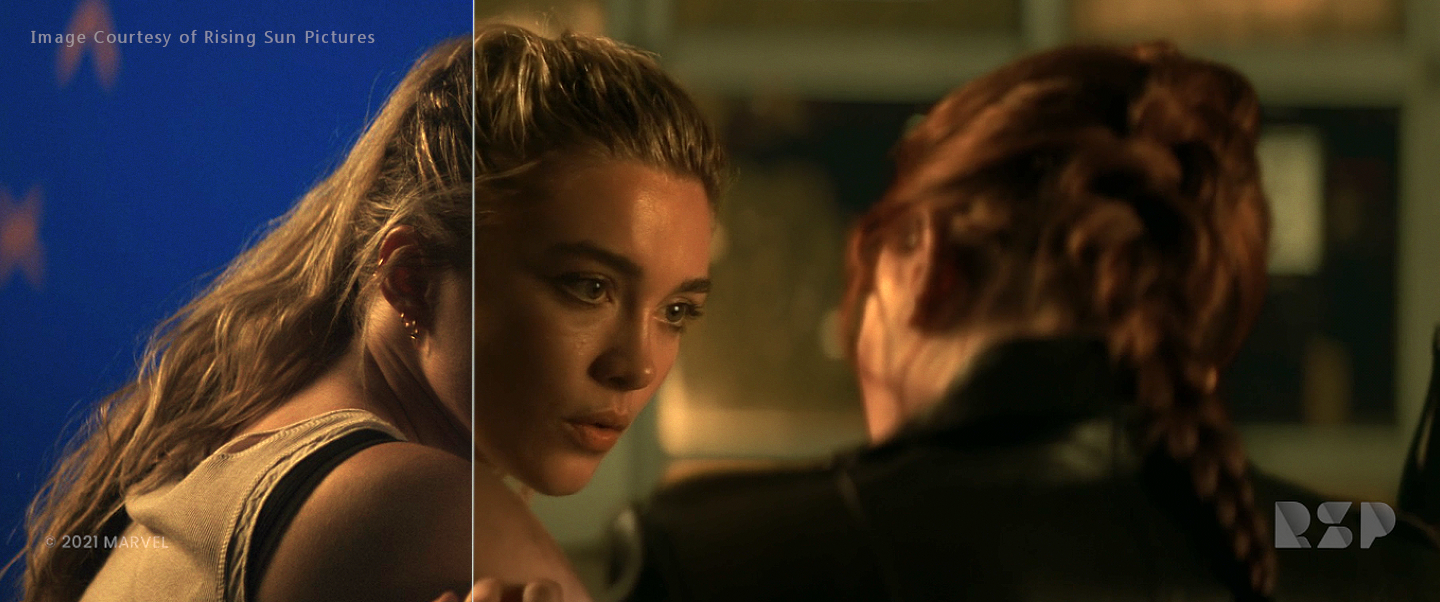
Q: How does Nuke support you with your projects? What problems does it solve?
A: Most of the studios are in touch with the Foundry team both for software updates and technical problems. Many of the new Nuke features come from the tickets and requests from users and companies. Foundry is very open to hearing its users and their needs.
I usually find my technical solutions in the Foundry community and get my questions answered by the Foundry specialists.
Q: How and when did you start using Nuke?
A: Before transitioning to Nuke, around 2014, I was working with After Effects. At some point, I felt there were lots of limitations of what I wanted to do in my composites and I kept on getting errors that I couldn’t break down in the tool or troubleshoot my problems. Then I read and heard about Nuke and its features, so I found the right tool to work with.
Q: How did you find the transition to Nuke?
A: I believe that for people with no compositing background, learning Nuke would be easier than for people with some background in working with other compositing software.
The main thing I had to do was to forget the rules that I was sticking to, which means working more like how professional compositors do in bigger productions. The concept of using the alpha channel in a more advanced way and also not having a big timeline was a bit confusing at first but the documents and tutorials on the Foundry website helped a lot.
Q: Do you have a favorite feature of Nuke?
A: The main favorite feature is for sure the node-based compositing system. Another is being able to work non-destructively. That’s one of the reasons that Nuke is being used for high-end productions.
Some other favorite features are the Script Editor, the very dynamic and optimized smart viewer system, as well as the wide variety of coding languages that Nuke supports.
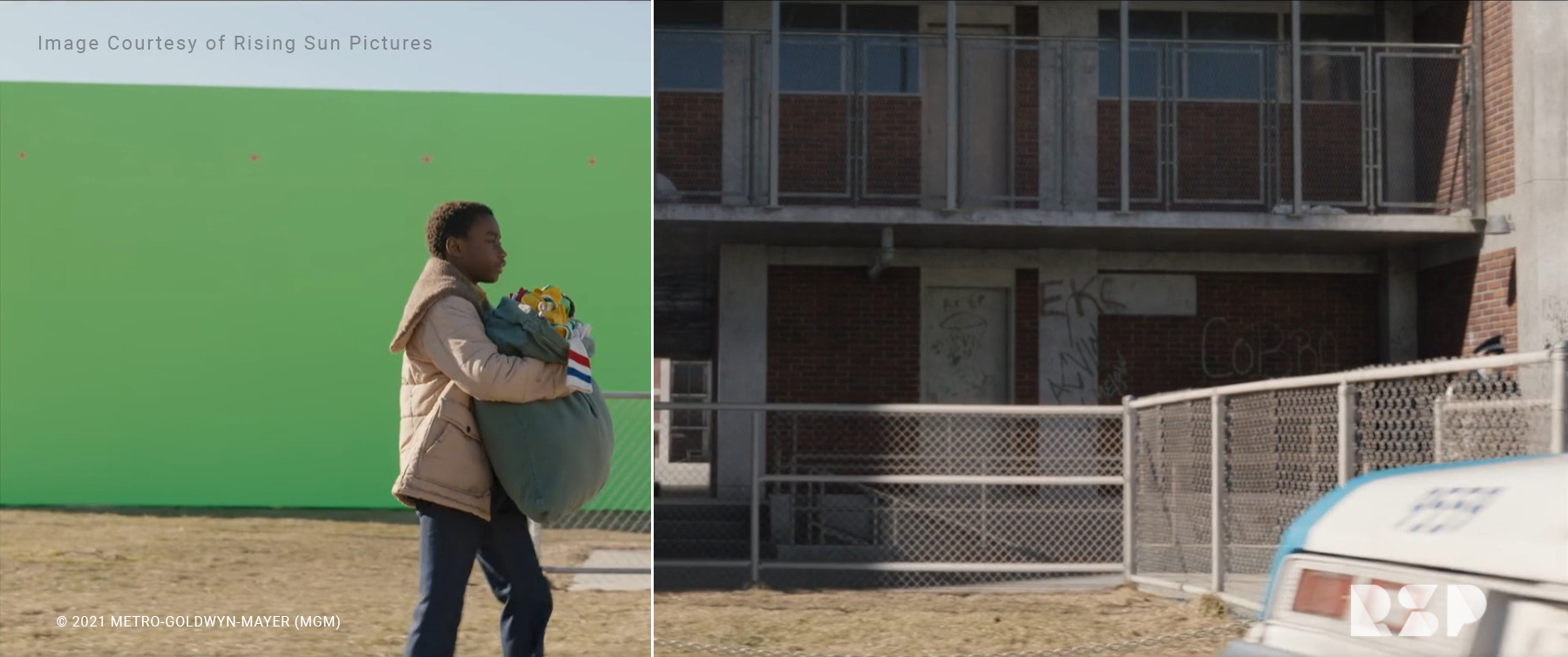
Q: How does Nuke stand out from other comp software?
A: I believe Nuke is state of the art in Software Engineering because there's an amazing architecture behind it that gives its users so much freedom in using and customizing the software while still delivering rock-solid performance. Being flexible, non-destructive and the high level of optimization that allows for solid performance and reliability, is something that's vital in big productions.
Q: Do you also use Nuke’s Timeline Tools (Nuke Studio, Hiero, HieroPlayer)? If so, when do you use them most?
A: I have some experience using Nuke Studio as the main VFX editorial software and also for managing and reviewing shots.
Nuke Studio could be a lifesaver for smaller productions. When there's no proper asset management pipeline and project tracking systems, Nuke Studio can replace a big part of this process on the compositing side.
Q: Are there any upcoming features you would like to see in the Nuke 14 series?
A: More advanced or AI-based object removal tools, Edge Extend tools with the ability to keep the edge texture.
Also, the ability to save node parameters in the node graph as presets and then choose between those multiple presets without opening or importing another comp script. Similar to the node presets but for the whole node graph instead — that would be amazing for comparing different variations in the comp look development stage.
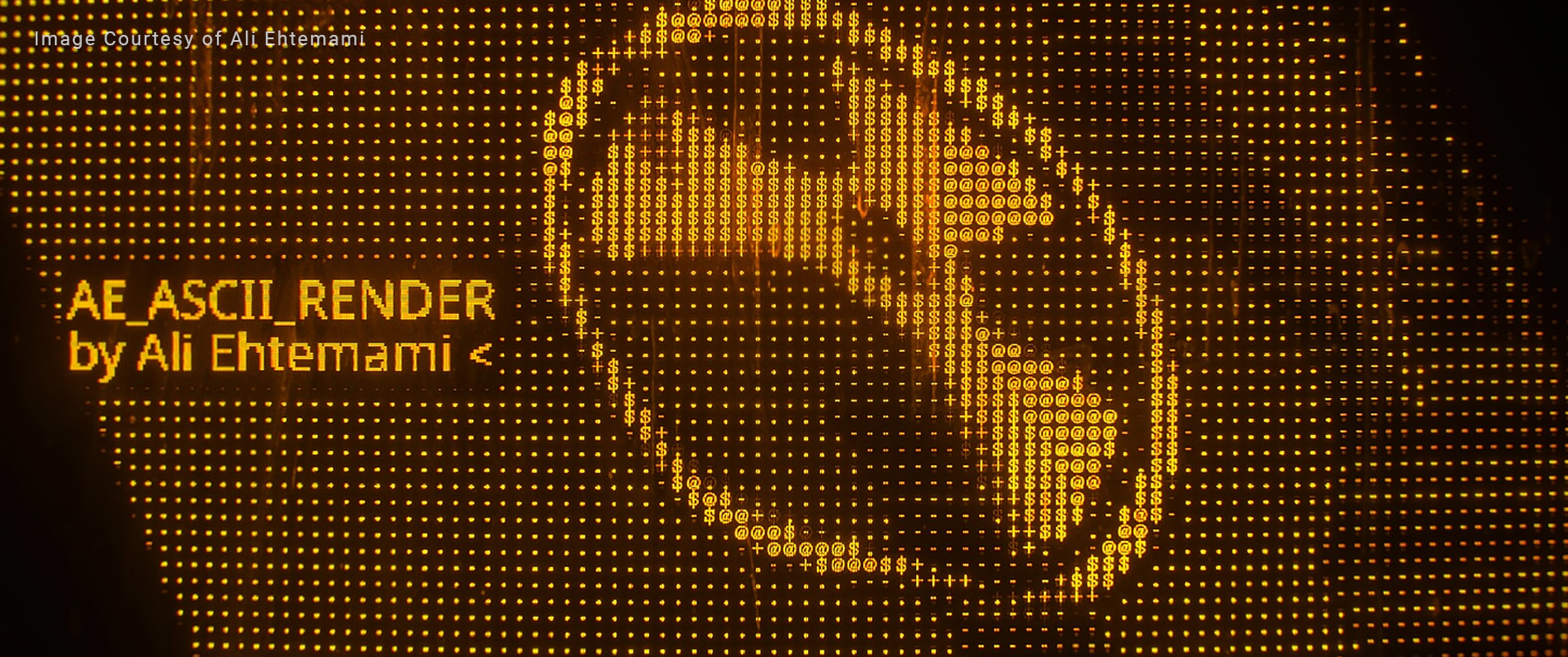
Q: You’ve also worked as a Nuke tools developer besides your day-to-day work. What inspired you to start developing tools for Nuke?
A: Compositing is a combination of creativity and technical skills. I always try to keep the balance between both sides. That's why I started to make creative tools like AE_Machinegun, Glitch and recently some text-based tools like Typewriter and AE_ACII_Render. The latter is my favorite one — being able to make those creative effects more procedural and automated means I have more time to focus on the creative details. When it comes to doing the same effect for several shots or any changes needed, I don't have to sacrifice creativity.
Besides creative tools, I like to design and write automations in Python — a batch or repetitive action on the nodes or files to save the time of labor every day. And, again, I can save more time to be creative.
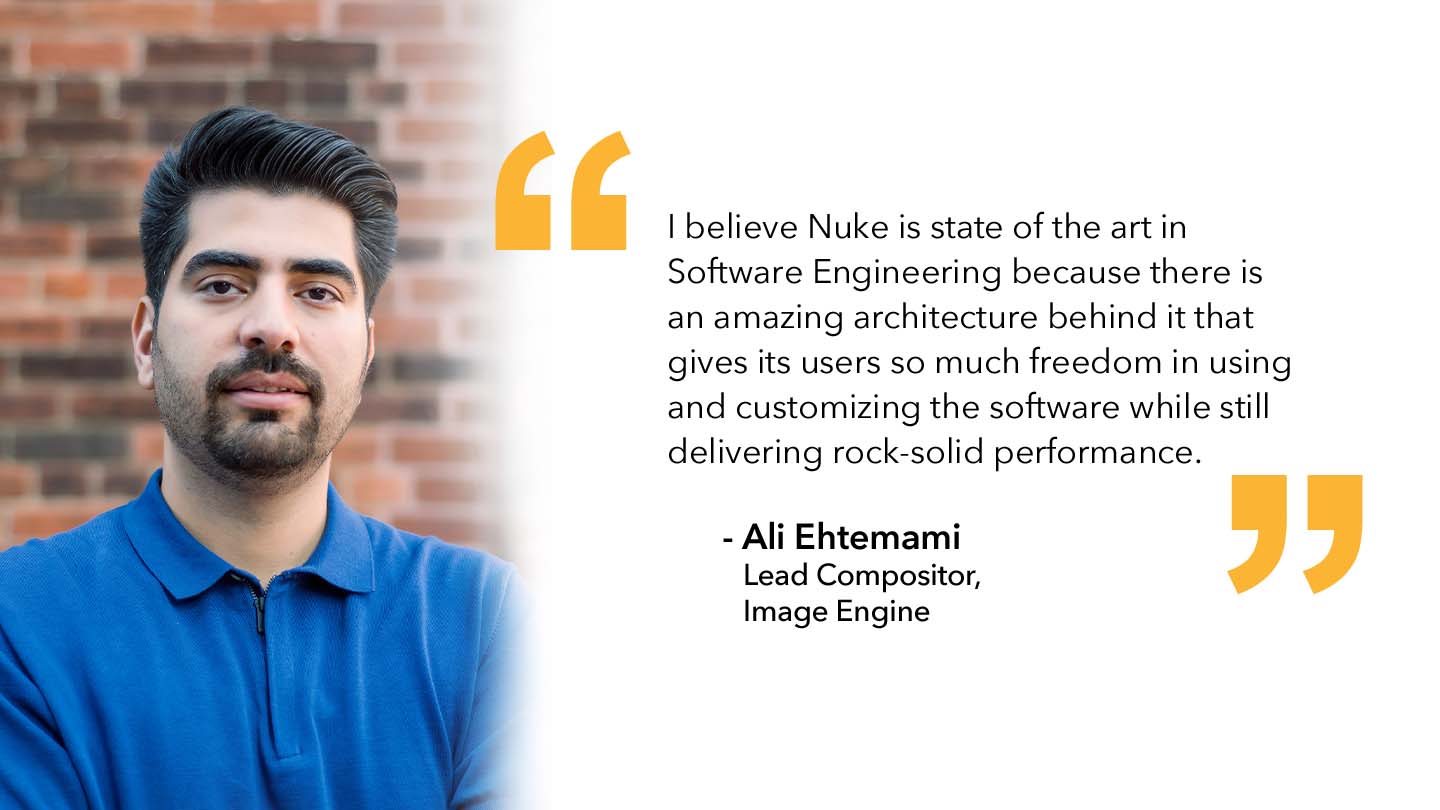
Q: What inspired you to start as a tutor on online compositing master classes?
A: The idea came from working with many people during these years and hearing about the courses they took and the outcome at the end, which wasn’t good enough to start as a Junior Compositor in companies.
So, I started to record some online courses in a way in which people can learn what they need to know, and what the companies expect when starting as a Junior Compositor or RotoPrep Artist. Compositing isn't just about making cool full CG shots and throwing some effect nodes. It’s more about having a keen eye for very fine details that make a perfectly rendered image look like it's being shot on a camera.
Q: Do you have any wider tips for aspiring compositors looking to break into the VFX industry?
A: I find that compositing is more about troubleshooting. Being creative and having an artistic sight while compositing shots is very important. But, in the end, for every single shot, there are things that we’ve never done before and we have to find a quick solution to make that shot final.
Compositing is a really interesting job in the whole VFX industry but needs patience and some sort of flexibility to any changes and requests. Since compositing is the last stage of the VFX process and directors see their shots after a long journey of work and effort, it's very likely to have some opinions that need to be addressed in the comp stage.
Q: What do you see as the future of the VFX industry? Are there any trends that you think will be with us in the long term?
A: For sure, AI-based software and the improvement of machine learning techniques will change some rules of VFX. I don’t want to say AI will take over some jobs but will change them, of course.
Virtual production is another trend that makes some changes in the compositing tasks. Compositors may work on fewer chroma key shots in the shows, but there’s still a need for them to work on LED wall shots if any changes need to be made. In some cases, it makes the overall chroma key process a lot easier and faster to achieve a seamless look.
